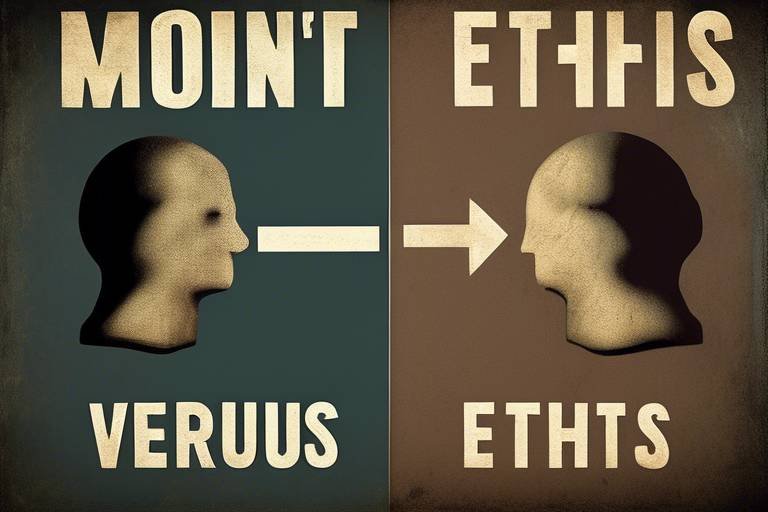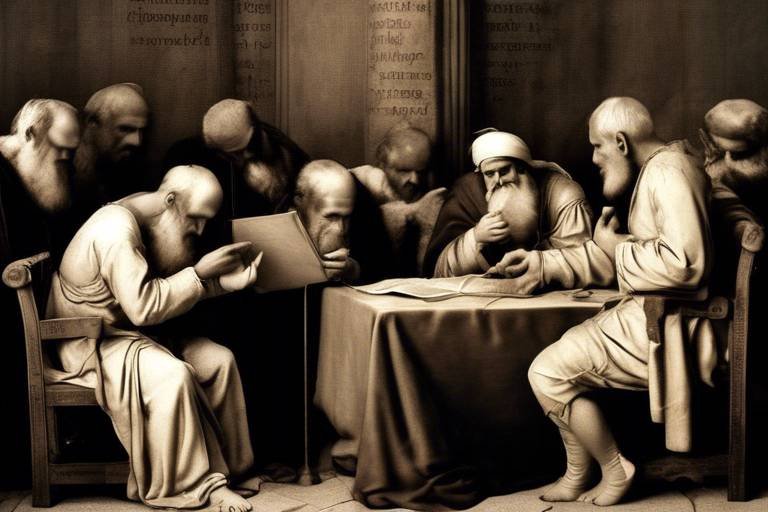The Morality of Uniform Civil Code
When we talk about the Uniform Civil Code (UCC), we’re diving into a deep pool of ethical considerations, societal impacts, and legal perspectives that resonate with every citizen in India. At its core, the UCC is not just a legal framework; it’s a vision for a more equitable society. Imagine a world where everyone, regardless of their religion or cultural background, is treated equally under the law. Sounds ideal, right? But the journey towards this ideal is fraught with complexities and moral dilemmas that require careful deliberation.
The essence of the UCC lies in its promise to replace personal laws derived from various religious texts and customs with a common set of laws applicable to all. This is significant in a country as diverse as India, where personal laws often lead to disparities in rights and responsibilities, particularly affecting women. The moral argument for the UCC can be summarized in a few key points:
- Equality: It aims to eliminate gender discrimination embedded in personal laws.
- Justice: It seeks to provide equal rights in matters of marriage, divorce, and inheritance.
- Unity: It promotes national integration by ensuring that all citizens are governed by the same laws.
However, the implementation of the UCC is not without its challenges. Critics argue that it may infringe on the cultural identities of various religious communities. They fear that a one-size-fits-all approach could dilute their traditions and customs, leading to a loss of individuality. This raises a critical question: how do we balance the need for a uniform legal framework with the respect for cultural diversity? It’s a tightrope walk between modernity and tradition.
Moreover, the political landscape adds another layer of complexity to the UCC debate. Political parties may exploit religious sentiments to gain electoral advantages, which complicates the discourse around the UCC. This manipulation can create an environment of fear and resistance, making it even harder to achieve consensus on such a crucial issue. Here, the morality of the UCC is put to the test: is it ethical to prioritize political gains over the fundamental rights of citizens?
In essence, the morality of the Uniform Civil Code is a multifaceted issue that intertwines legal, social, and cultural threads. It’s not just about laws; it’s about the lives they affect. The UCC has the potential to be a powerful tool for social justice and gender equality, but its success hinges on our ability to navigate the ethical implications and societal impacts it brings.
- What is the Uniform Civil Code?
The UCC aims to replace personal laws based on the scriptures and customs of each major religious community in India with a common set governing every citizen. - Why is the UCC important?
The UCC is crucial for promoting equality and justice among all citizens, ensuring that personal laws do not lead to discrimination. - What are the main arguments for and against the UCC?
Proponents argue it promotes gender equality and simplifies legal processes, while opponents fear it threatens cultural identities. - How does the UCC relate to gender equality?
The UCC has the potential to eliminate gender disparities in marriage, divorce, and inheritance laws, thereby empowering women.

Understanding the Uniform Civil Code
The Uniform Civil Code (UCC) is a concept aimed at replacing personal laws based on the scriptures and customs of various religious communities in India with a common set of laws that govern every citizen. Imagine a country where all individuals, regardless of their religion, are treated equally under the same legal framework. This is the essence of the UCC. It seeks to provide a cohesive legal structure that transcends religious divides, thereby fostering a sense of unity and equality among the diverse populace of India.
Currently, India operates under a system where personal laws differ significantly among various communities, often leading to disparities in rights and responsibilities. These personal laws govern critical aspects of life such as marriage, divorce, inheritance, and adoption. For instance, while some communities may allow polygamy, others strictly prohibit it. This inconsistency can lead to confusion, legal complications, and, most importantly, inequality. The UCC aims to eliminate these discrepancies, ensuring that all citizens have the same rights and obligations, irrespective of their religious affiliations.
Moreover, the UCC is not merely a legal necessity; it is also a moral imperative. By establishing a uniform set of laws, the UCC promotes gender equality and social justice. Women, in particular, stand to benefit immensely from the UCC, as it seeks to dismantle patriarchal norms embedded in various personal laws. For instance, under the UCC, women would have equal rights in matters of divorce and inheritance, which is often not the case in many religious laws today.
To better understand the implications of the UCC, consider the following key points:
- The UCC aims to unify personal laws across religious communities.
- It promotes equality and justice for all citizens, regardless of religious background.
- It addresses gender disparities in personal laws, empowering women.
- Implementing the UCC can simplify legal processes, making them more accessible to the average citizen.
In essence, the UCC is a step towards creating a more equitable society where laws are not dictated by religious texts but are based on the principles of justice and equality. The idea is to create a legal environment that respects individual rights while also upholding the values of a secular nation. As we delve deeper into the historical context and constitutional provisions of the UCC, it becomes evident that this initiative is not just about legal reform; it is about redefining the very fabric of Indian society.

The Historical Context of UCC
The origins of the Uniform Civil Code (UCC) in India can be traced back to the very foundation of the nation itself. When India gained independence in 1947, the leaders recognized that the diverse cultural and religious fabric of the country necessitated a unified legal framework. This was not just a matter of legal uniformity; it was about promoting gender equality and secularism in a society that was rich in traditions yet often marred by disparities in personal laws.
At the heart of the UCC debate lies the understanding that personal laws, which govern marriage, divorce, inheritance, and adoption, vary significantly among different religious communities. This variation often leads to unequal treatment of individuals, especially women, who may find themselves at a disadvantage due to the prevailing customs of their respective faiths. The UCC aims to replace these personal laws with a common set of laws applicable to all citizens, thus promoting a sense of national integration.
The historical context of the UCC is also deeply intertwined with the Constitution of India. The framers of the Constitution were acutely aware of the need for a legal framework that would uphold the principles of equality and justice for every individual, irrespective of their religious background. This awareness is reflected in various constitutional provisions that advocate for a uniform legal system. For instance, Articles 44 and 15 of the Constitution highlight the imperative of ensuring that all citizens are treated equally under the law.
To better understand the historical evolution of the UCC, consider the following timeline:
| Year | Event |
|---|---|
| 1947 | India gains independence; discussions about a unified legal framework begin. |
| 1950 | The Constitution of India is adopted, laying the foundation for the UCC. |
| 1985 | Shah Bano case highlights the need for reform in Muslim personal laws. |
| 2005 | Hindu Succession Act amended to provide equal inheritance rights to women. |
| Present | Ongoing debates and discussions on the implementation of the UCC. |
The UCC's journey has not been straightforward. While the vision of a uniform legal code is noble, it has faced numerous hurdles, including resistance from various religious groups who see it as an infringement on their personal laws. This resistance is rooted in a fear of losing cultural identity and autonomy, which has made the dialogue around the UCC complex and often contentious.
In conclusion, the historical context of the UCC is a tapestry woven with threads of hope, struggle, and transformation. As India continues to evolve, the quest for a Uniform Civil Code remains a significant chapter in its journey toward achieving true equality and justice for all its citizens.
- What is the Uniform Civil Code? The UCC is a proposal to replace personal laws based on the scriptures and customs of each major religious community in India with a common set governing every citizen.
- Why is the UCC important? It aims to promote gender equality, simplify legal processes, and ensure that all citizens are subject to the same laws, irrespective of their religion.
- What challenges does the UCC face? The UCC faces resistance from various religious communities and political dynamics, complicating its implementation.
- How does the UCC impact women's rights? The UCC has the potential to significantly enhance gender equality by providing equal rights in marriage, divorce, and inheritance.
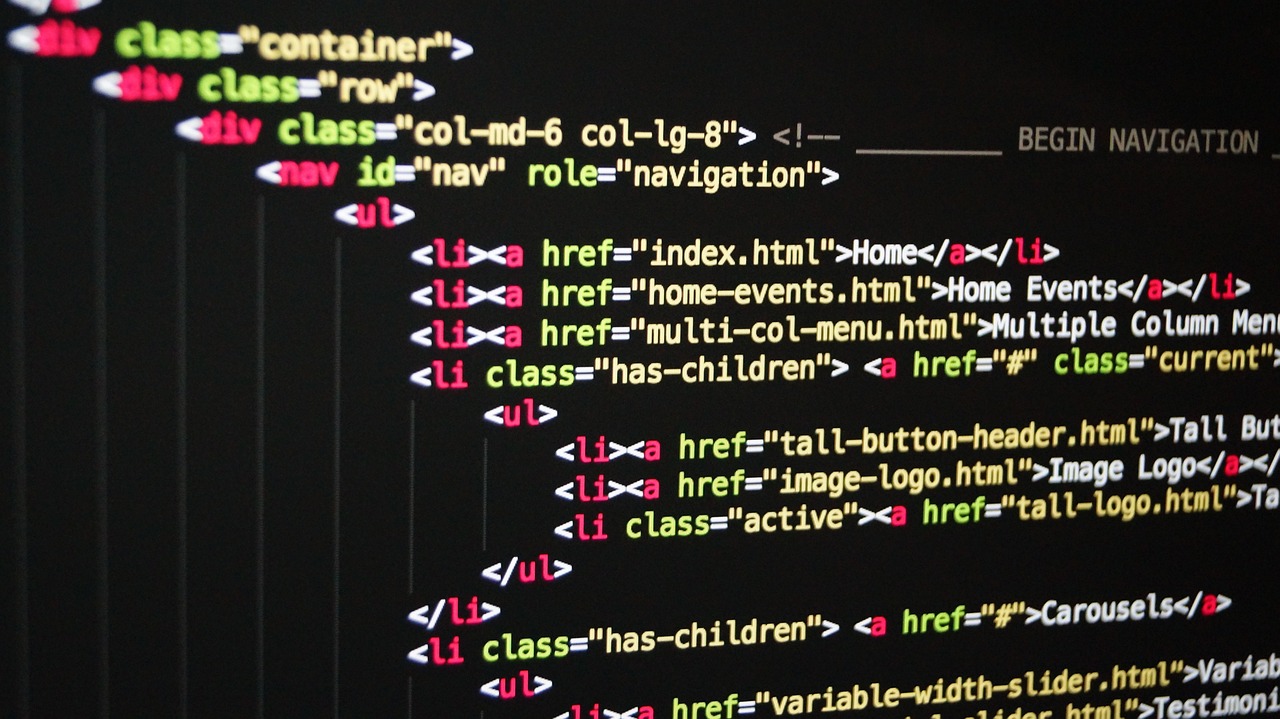
Constitutional Provisions
The foundation of the Uniform Civil Code (UCC) in India is deeply rooted in the country's Constitution, which serves as a guiding framework for ensuring equality and justice among all its citizens. The UCC is not merely a legal proposition; it embodies the aspirations of a diverse nation striving for unity in diversity. Key articles of the Constitution, particularly Articles 44 and 15, are pivotal in advocating for a common legal framework that transcends religious boundaries.
Article 44, part of the Directive Principles of State Policy, explicitly directs the state to secure a uniform civil code for all citizens. This article is significant because it emphasizes the importance of a cohesive legal structure that promotes national integration. The essence of Article 44 can be summarized as follows:
| Article | Description |
|---|---|
| Article 44 | Encourages the establishment of a Uniform Civil Code across India, fostering national integration. |
Moreover, Article 15 plays a crucial role in reinforcing the need for the UCC by prohibiting discrimination on various grounds, including religion, race, caste, sex, or place of birth. This prohibition is vital for ensuring that all citizens enjoy equal rights and protections under the law, which is a cornerstone of democratic governance. The implications of Article 15 can be summarized as follows:
- Equality Before Law: Every citizen is entitled to equal protection under the law, regardless of their background.
- Elimination of Discrimination: The state is mandated to take proactive measures to eliminate any form of discrimination.
- Promotion of Inclusivity: Ensures that all citizens, especially marginalized groups, are included in the legal framework.
In light of these provisions, the UCC is seen as a necessary step towards achieving true equality in a country marked by diverse cultural and religious practices. It aims to dismantle the barriers that personal laws create, which often lead to unequal treatment, particularly in matters of marriage, divorce, and inheritance. As we delve deeper into the implications of the UCC, it becomes clear that the constitutional provisions are not just legal mandates; they are a call for a more just and equitable society.
- What is the Uniform Civil Code?
The UCC aims to replace personal laws based on religion with a common set governing all citizens in India. - Why is the UCC important?
It promotes equality and justice by ensuring that all citizens are subject to the same laws, irrespective of religion. - What are the constitutional provisions supporting the UCC?
Key articles include Article 44, which encourages a uniform civil code, and Article 15, which prohibits discrimination based on religion, race, caste, sex, or place of birth. - What challenges does the UCC face?
Resistance from religious communities and political dynamics complicate the UCC's implementation.

Article 44: Directive Principles
The essence of Article 44 lies in its vision for a unified legal framework that transcends the boundaries of religion and personal laws, advocating for a Uniform Civil Code across India. This article is part of the Directive Principles of State Policy, which serve as guidelines for the state in governance and policy-making. The call for a uniform civil code is not just a legal reform; it is a step towards achieving national integration and ensuring that all citizens are treated equally under the law.
Imagine a society where every individual, regardless of their religious background, is governed by the same set of laws concerning marriage, divorce, inheritance, and adoption. This is the dream that Article 44 aims to realize. It seeks to eliminate the discrepancies that arise from personal laws, which often perpetuate inequality and injustice, particularly against women.
Furthermore, the implementation of Article 44 would signify a commitment to the principles of secularism and gender equality. By providing a common legal framework, the state can ensure that personal laws do not discriminate based on gender or religion. For instance, under the current system, women from different religious communities may face varying degrees of rights and protections. Article 44 aims to level this playing field, ensuring that:
- All citizens have equal rights in matters of marriage and divorce.
- Inheritance laws are applied uniformly, protecting women's rights to property.
- Adoption and guardianship laws are consistent, promoting the welfare of children.
Moreover, the directive also emphasizes the need for the state to take proactive measures in promoting a uniform civil code. This involves not only legislative action but also educating the public about the importance of such reforms. It challenges the notion that personal laws are sacrosanct and beyond scrutiny, urging a re-evaluation of practices that may be outdated or discriminatory.
In conclusion, Article 44 stands as a beacon of hope for those advocating for equality and justice in India. It calls upon the state to take meaningful steps towards a Uniform Civil Code, reflecting the values enshrined in the Constitution. The journey towards this goal may be fraught with challenges, but the vision of a society where all individuals are treated equally under the law is worth striving for.
- What is the Uniform Civil Code? The Uniform Civil Code aims to replace personal laws based on religious scriptures and customs with a common set of laws governing all citizens.
- Why is Article 44 important? Article 44 is crucial as it advocates for a unified legal framework that promotes equality and justice, irrespective of an individual's religion.
- What challenges does the UCC face? The UCC faces challenges such as resistance from religious communities and political dynamics that complicate its implementation.

Article 15: Prohibition of Discrimination
Article 15 of the Indian Constitution stands as a powerful beacon of hope and justice, explicitly prohibiting discrimination on the grounds of religion, race, caste, sex, or place of birth. This article is not just a legal provision; it embodies the spirit of equality that the Constitution aims to achieve. Imagine a society where every individual, regardless of their background, stands on equal footing before the law. Article 15 is designed to ensure that such a vision becomes a reality, fostering a culture of inclusivity.
At its core, Article 15 seeks to dismantle the barriers that have historically marginalized certain groups in society. By prohibiting discrimination, it encourages a legal framework where individual rights are upheld, and everyone has the opportunity to thrive. This is particularly significant in a diverse nation like India, where multiple religions and cultures coexist. The article serves as a reminder that while personal laws may vary across communities, the fundamental rights of all citizens remain protected under a uniform legal umbrella.
Furthermore, Article 15 reinforces the need for a common legal framework, which is crucial for implementing the Uniform Civil Code. By ensuring that all citizens are treated equally, it paves the way for a more equitable society. It challenges the notion that personal laws can override the fundamental rights guaranteed by the Constitution. In this sense, Article 15 is not merely a legal stipulation; it is a call to action for all citizens to advocate for their rights and the rights of others.
To illustrate the importance of Article 15, consider the following key points:
- Equality Before the Law: Article 15 asserts that every individual should be treated equally, thus promoting fairness in legal proceedings.
- Protection Against Discrimination: It safeguards vulnerable communities from being discriminated against, ensuring that everyone has access to justice.
- Foundation for UCC: The principles enshrined in Article 15 bolster the arguments for a Uniform Civil Code, emphasizing that personal laws should align with constitutional mandates.
In conclusion, Article 15 plays a pivotal role in shaping the legal landscape of India. It not only prohibits discrimination but also lays the groundwork for a society that values equality and justice. As the debate surrounding the Uniform Civil Code continues, the principles of Article 15 remain a guiding light, urging lawmakers and citizens alike to strive for a more just and equitable India.
- What is the significance of Article 15? Article 15 is crucial as it prohibits discrimination and ensures equality for all citizens, forming a foundational aspect of the Indian Constitution.
- How does Article 15 relate to the Uniform Civil Code? Article 15 supports the implementation of the UCC by advocating for a common legal framework that upholds the rights of all citizens, irrespective of their personal laws.
- Are there any exceptions to Article 15? While Article 15 prohibits discrimination, it does allow for affirmative action measures to uplift marginalized communities, ensuring that equality is achieved in a meaningful way.

Arguments for UCC Implementation
The debate surrounding the Uniform Civil Code (UCC) is not just a legal issue; it’s a matter of social justice, equality, and national integrity. Proponents of the UCC argue that it is essential for promoting gender equality and ensuring that all citizens, regardless of their religious background, are treated equally under the law. Imagine a society where a woman’s rights in marriage, divorce, and inheritance are not determined by her religion, but by a common legal framework that guarantees her equality. This is the vision that advocates for the UCC strive to achieve.
One of the most compelling arguments for implementing the UCC is its potential to simplify legal processes. Currently, the existence of multiple personal laws can create confusion and lead to legal disputes. For instance, a couple from different religious backgrounds may face challenges when trying to navigate the legal systems that govern their personal lives. By having a uniform set of laws, these complexities could be significantly reduced, making it easier for individuals to understand their rights and obligations.
Furthermore, the UCC is seen as a tool for fostering national integration. In a country as diverse as India, a common legal framework can help bridge the gaps between various communities. It promotes the idea that all citizens, irrespective of their religious affiliations, are part of one nation. This unity is crucial for the progress and development of the country as a whole. When people feel that they are governed by the same laws, it can enhance their sense of belonging and reduce societal tensions.
Moreover, the UCC can play a significant role in empowering women. Currently, many personal laws are skewed in favor of men, leaving women vulnerable and often without adequate legal protection. Implementing the UCC would mean that women have equal rights in matters of marriage, divorce, and inheritance. This shift could lead to a more equitable society where women are not only recognized as equal partners but also have the legal backing to assert their rights. The empowerment of women is not just beneficial for them individually; it has a ripple effect that can lead to broader societal changes.
In addition to these arguments, the UCC could serve as a catalyst for legal reforms that address existing gender disparities in personal laws. By aligning personal laws with constitutional principles of equality and justice, the UCC can help dismantle archaic practices that have long been entrenched in society. This would not only modernize the legal framework but also align it with contemporary values of human rights and dignity.
In summary, the arguments for UCC implementation are multifaceted and deeply rooted in the principles of equality, justice, and national integration. Advocates believe that the UCC is not merely a legal reform but a necessary step towards building a more inclusive and equitable society. As we move forward, it is essential to engage in constructive dialogue about the UCC, addressing concerns while emphasizing its potential to transform lives and promote justice for all.
- What is the Uniform Civil Code? The UCC aims to replace personal laws based on religious scriptures with a common set of laws governing all citizens in India.
- Why is the UCC important? It promotes gender equality, simplifies legal processes, and fosters national integration by ensuring uniformity in laws across different communities.
- What are the challenges to implementing the UCC? Resistance from religious groups, concerns about cultural identity, and political dynamics are significant challenges to UCC adoption.
- How could the UCC impact women's rights? The UCC has the potential to enhance women's rights in marriage, divorce, and inheritance, ensuring equal treatment under the law.

Challenges to UCC Adoption
The journey towards adopting a Uniform Civil Code (UCC) in India is fraught with numerous challenges that stem from the country's rich tapestry of cultural, religious, and social identities. One of the most significant hurdles is the religious opposition that arises from various communities. Many groups feel that the UCC threatens their traditional personal laws, which are often deeply intertwined with their cultural identity. This resistance is not merely a matter of legal frameworks; it's about preserving the essence of their beliefs and practices. Imagine asking someone to change their family recipe that has been passed down for generations; it’s not just food—it’s heritage.
Moreover, the political landscape adds another layer of complexity to the UCC debate. Political parties often capitalize on religious sentiments for electoral gains, which can skew the discourse surrounding the UCC. This manipulation can lead to heightened tensions and polarize communities, making it even harder to reach a consensus on a unified legal framework. As a result, the discussions surrounding the UCC can sometimes feel like a high-stakes chess game, where every move is calculated and every decision is influenced by the fear of losing support from a particular voter base.
In addition to these challenges, there are also concerns about cultural identity and personal freedoms. Many individuals fear that a uniform code could erase the nuances of their personal laws, which they view as essential to their cultural identity. For instance, practices surrounding marriage, inheritance, and divorce vary significantly across different communities. The idea of a one-size-fits-all approach can seem daunting and even threatening. It raises the question: how do we balance the need for equality with the desire to honor diverse traditions?
Furthermore, the UCC's implementation could lead to unintended consequences, such as resistance from those who feel their rights are being infringed upon. This situation can create a paradox where the very laws meant to promote equality might end up alienating certain groups. The challenge lies in crafting a UCC that respects individual rights while promoting a unified legal framework. It's like trying to create a beautiful tapestry; each thread must be carefully woven together to maintain the integrity of the whole.
To address these challenges, open dialogue and education are essential. Engaging communities in conversations about the benefits of the UCC, particularly in terms of gender equality and legal clarity, can help alleviate fears and build support. By fostering understanding, we can pave the way for a more inclusive approach to the UCC that respects diversity while promoting justice for all.
1. What is the Uniform Civil Code (UCC)?
The UCC aims to replace personal laws based on the scriptures and customs of each major religious community in India with a common set governing every citizen.
2. Why is the UCC important?
The UCC is important because it promotes equality and justice by ensuring that all citizens are subject to the same laws, irrespective of their religion.
3. What are the main challenges to implementing the UCC?
The main challenges include religious opposition, political dynamics, concerns about cultural identity, and fears about personal freedoms.
4. How could the UCC impact gender equality?
The UCC has the potential to enhance gender equality by providing equal rights in marriage, divorce, and inheritance, thereby empowering women.
5. What role does education play in UCC adoption?
Education and open dialogue are essential to address fears and misconceptions about the UCC, fostering understanding and support among diverse communities.
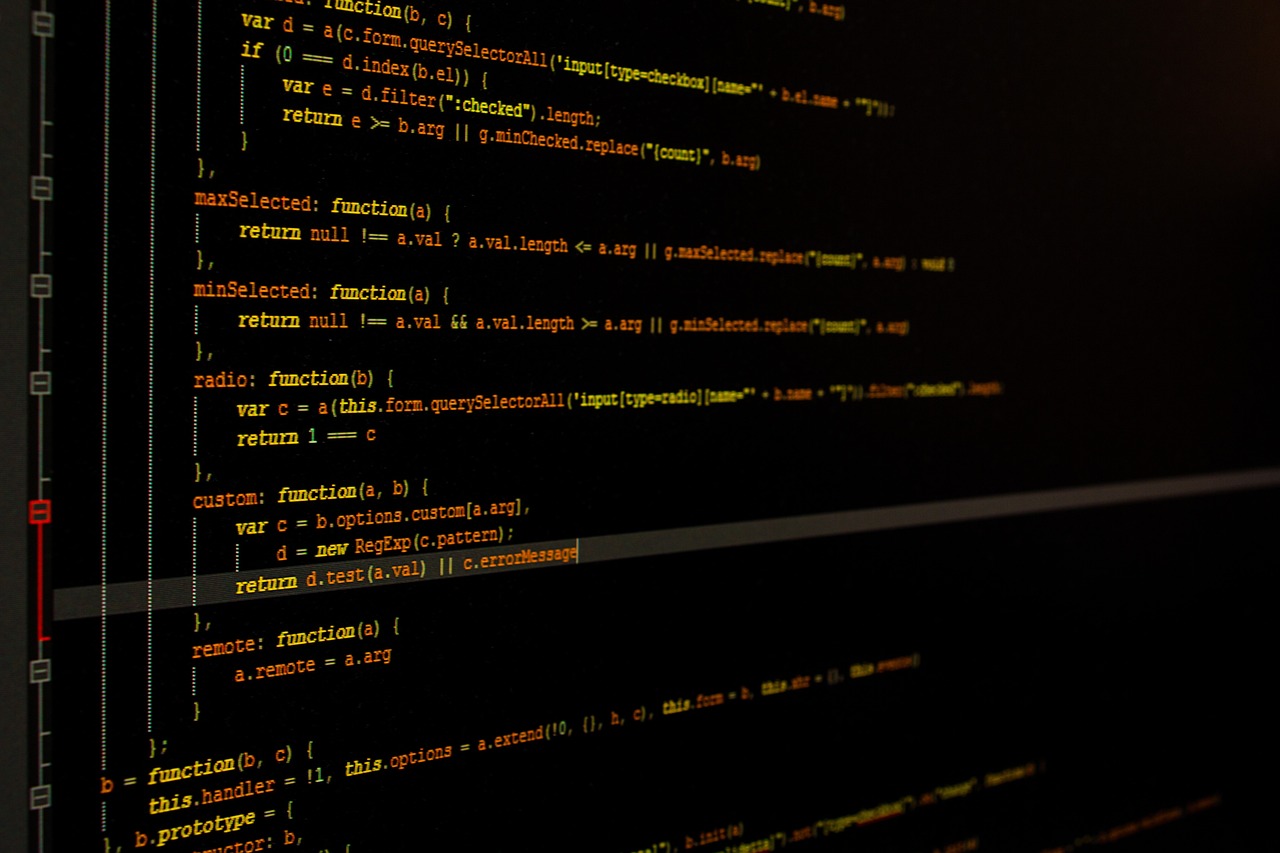
Religious Opposition
The debate surrounding the implementation of the Uniform Civil Code (UCC) is not merely a legal discussion; it is deeply intertwined with the fabric of India's diverse religious landscape. Many religious communities have expressed strong opposition to the UCC, fearing that its adoption would infringe upon their personal laws, which are often rooted in centuries of tradition and cultural identity. These communities argue that personal laws are not just legal frameworks; they are a vital part of their religious and cultural heritage. The apprehension stems from the belief that a uniform code may dilute their unique practices and customs, leading to a homogenization of diverse traditions.
One of the primary concerns is the perceived threat to cultural identity. For instance, communities that follow specific religious practices related to marriage, divorce, and inheritance worry that the UCC could impose a one-size-fits-all solution that does not accommodate their unique needs. This leads to a sense of alienation and fear of losing their traditional values, which they hold dear. The emotional weight of these concerns cannot be overstated, as they touch upon the core of individual and community identity.
Moreover, religious opposition is often fueled by political dynamics. Politicians may exploit these sentiments, using them as a rallying point to gain votes and support from specific communities. This manipulation can further entrench resistance to the UCC, as communities band together to protect their rights and traditions. The interplay between politics and religion creates a complex landscape where the UCC is viewed not just as a legal reform but as a potential threat to the very essence of cultural existence.
Additionally, it is essential to recognize that opposition to the UCC is not monolithic. Within each religious community, there are varying opinions and interpretations regarding the necessity and implications of a uniform code. Some progressive voices advocate for reform and argue that personal laws can be reformed to align with contemporary values of equality and justice without losing their essence. This internal debate adds another layer of complexity to the discussion, highlighting that the path forward requires dialogue and understanding.
In conclusion, while the UCC aims to promote equality and justice for all citizens, the religious opposition it faces is significant and multifaceted. Addressing these concerns requires a sensitive approach that respects the diverse cultural identities of India's population while striving for a legal framework that upholds the principles of equality and justice.
- What is the Uniform Civil Code?
The Uniform Civil Code aims to replace personal laws based on religious customs with a common set of laws governing all citizens in India. - Why do some religious groups oppose the UCC?
Many religious groups believe that the UCC threatens their cultural identity and infringes upon their personal laws, which they consider integral to their traditions. - How does political dynamics affect the UCC debate?
Political parties may exploit religious sentiments for electoral gains, complicating the discourse and creating resistance to the UCC among various communities. - Can the UCC promote gender equality?
Yes, proponents argue that the UCC could enhance gender equality by providing equal rights in marriage, divorce, and inheritance.

Political Considerations
The debate surrounding the Uniform Civil Code (UCC) is not merely a legal issue; it is deeply intertwined with the political landscape of India. Political parties often find themselves at a crossroads when it comes to endorsing or opposing the UCC, as their stances can significantly influence their electoral prospects. For many, the UCC represents a potential shift towards a more secular and egalitarian society, but for others, it poses a threat to the religious identities that are integral to their voter base.
Many political leaders leverage religious sentiments to galvanize support during elections. This makes the UCC a double-edged sword; while it aims to promote equality, it can also be perceived as an attack on cultural traditions. The challenge lies in balancing the need for a unified legal framework with the diverse cultural identities that exist in India. As a result, political parties may choose to adopt positions that resonate with their constituents, which can stall the implementation of the UCC.
Furthermore, the political discourse surrounding the UCC often becomes polarized. Some parties advocate for its implementation as a means to achieve gender equality and national integration, while others vehemently oppose it, citing concerns over cultural identity and the preservation of personal laws. This polarization can lead to a significant divide among the populace, where the focus shifts from the benefits of the UCC to the perceived threats it poses to individual rights and religious freedoms.
To better understand the political dynamics at play, consider the following table that outlines the positions of various political parties regarding the UCC:
| Political Party | Position on UCC |
|---|---|
| Party A | Supports implementation for gender equality |
| Party B | Opposes UCC, citing cultural preservation |
| Party C | Neutral; focuses on electoral gains |
| Party D | Advocates for gradual reforms |
This table illustrates how the political landscape can significantly influence the discourse around the UCC, often leading to a stalemate where the potential benefits of the code are overshadowed by political maneuvering. The challenge remains for leaders to rise above the fray and recognize the UCC as a tool for social justice rather than a political football.
Ultimately, the path forward requires a collaborative approach, where political parties, civil society, and religious communities engage in meaningful dialogue. By fostering a culture of understanding and respect for diversity, it may be possible to navigate the complex political considerations surrounding the UCC and move toward a more equitable legal framework for all citizens.
- What is the Uniform Civil Code? The UCC aims to replace personal laws based on religious scriptures with a common set of laws for all citizens.
- Why is the UCC important? It promotes gender equality and ensures that all citizens are treated equally under the law, irrespective of their religion.
- What are the main challenges to implementing the UCC? Resistance from religious communities and political considerations often complicate the discourse around the UCC.
- How can the UCC impact women's rights? The UCC has the potential to provide equal rights in marriage, divorce, and inheritance, thus empowering women.

Impact on Gender Equality
The Uniform Civil Code (UCC) has the potential to significantly enhance gender equality in India. By providing a common legal framework that governs marriage, divorce, and inheritance, the UCC aims to dismantle the patriarchal structures that have long oppressed women. Imagine a world where every woman, regardless of her religion, has the same legal rights as her male counterparts. This vision can become a reality with the implementation of the UCC.
Currently, personal laws vary widely across different religions, often leading to unequal treatment of women. For instance, in some communities, women may face restrictions on their right to inherit property or may not have equal rights in marriage. This disparity not only affects their financial independence but also their social standing. The UCC seeks to rectify these inequalities by ensuring that all citizens are subject to the same laws, thereby empowering women and protecting their interests.
Implementing the UCC could lead to necessary legal reforms that address these gender disparities. For example, it could ensure that:
- Women have equal rights in marriage and divorce, allowing them to make choices free from coercion.
- Inheritance laws are standardized, enabling women to inherit property just like men.
- Legal protections against domestic violence are uniformly applied, regardless of religious background.
Moreover, the UCC can play a crucial role in changing societal norms. When women are granted equal rights under the law, it sends a powerful message about their value and worth in society. This shift can inspire future generations to challenge gender stereotypes and advocate for their rights. The ripple effect of such changes could lead to a more equitable society where both men and women can thrive without the constraints of outdated customs.
To illustrate the potential impact of the UCC, let’s consider some case studies from regions where similar codes have been implemented. In countries like Turkey and Tunisia, the introduction of a uniform legal framework regarding personal laws has led to significant improvements in women's rights. Women in these countries have reported greater access to education, higher participation in the workforce, and increased political representation. These changes demonstrate how a unified legal code can foster an environment conducive to gender equality.
However, the journey toward achieving gender equality through the UCC is not without its challenges. While the legal framework can provide the necessary tools for empowerment, societal attitudes and cultural norms must also evolve. It is essential for communities to engage in open dialogues about gender roles and the importance of equality. Only then can the UCC truly fulfill its promise of justice and fairness for all.
- What is the Uniform Civil Code?
The UCC is a proposal to replace personal laws based on the scriptures and customs of each major religious community in India with a common set governing every citizen. - How will the UCC impact women's rights?
The UCC aims to provide equal rights in marriage, divorce, and inheritance, thereby empowering women and promoting gender equality. - Are there any challenges to implementing the UCC?
Yes, the UCC faces resistance from various religious communities and political dynamics that complicate the discourse around a unified legal framework. - What are some examples of countries with similar codes?
Countries like Turkey and Tunisia have implemented uniform legal frameworks that have positively impacted women's rights and societal norms.

Legal Reforms for Women
The implementation of the Uniform Civil Code (UCC) is not just a legal formality; it represents a significant shift towards achieving gender equality in India. Currently, women face numerous challenges due to the disparities in personal laws that vary across different religions. These laws often perpetuate gender biases, leaving women vulnerable in matters of marriage, divorce, and inheritance. By establishing a UCC, the legal landscape can be transformed to ensure that women receive equal rights and protections under the law.
One of the most pressing issues is the lack of uniformity in marriage laws. For instance, in some communities, a man can unilaterally divorce his wife, while in others, women may face severe restrictions on their right to initiate divorce. The UCC aims to standardize these laws, ensuring that both men and women have equal rights to initiate divorce and that the process is equitable. This change is crucial in a society where women often bear the brunt of marital discord.
Moreover, inheritance laws present another area where women are at a disadvantage. In many communities, women have limited rights to inherit property, often relying on male relatives for financial security. The UCC can rectify this by ensuring that women have equal rights to inherit property, thus empowering them economically. This shift not only fosters independence but also contributes to a more balanced societal structure.
To illustrate the potential impact of the UCC on women's rights, consider the following table that outlines the current disparities in personal laws versus the proposed uniform laws:
| Aspect | Current Personal Laws | Proposed UCC |
|---|---|---|
| Marriage | Varies by religion; unequal rights | Equal rights for both spouses |
| Divorce | Men can initiate easily; women face hurdles | Equal grounds for divorce for both |
| Inheritance | Limited rights for women | Equal inheritance rights for all |
Additionally, the UCC can facilitate legal reforms that address issues such as maintenance rights and custody of children. Currently, the laws governing these aspects can be quite different based on religious beliefs, often leading to unfair outcomes for women. A unified code would ensure that all women, regardless of their religious background, are entitled to fair treatment in these matters.
In conclusion, the UCC holds the promise of transforming the legal framework to empower women significantly. By addressing the disparities in personal laws, it creates a path towards true equality and justice. However, the journey towards implementing these reforms requires not just legal changes but also a shift in societal attitudes towards gender roles. Only then can we hope to see a society where women are treated as equals, with rights that are respected and upheld.
- What is the Uniform Civil Code?
The Uniform Civil Code aims to replace personal laws based on religious scriptures with a common set of laws governing all citizens in India. - How does UCC promote gender equality?
The UCC ensures equal rights in marriage, divorce, and inheritance, thereby empowering women and protecting their interests. - What are the main challenges to implementing UCC?
Resistance from religious communities and political dynamics complicate the discourse around a unified legal framework. - What impact could UCC have on women's rights?
It could lead to significant legal reforms that address gender disparities, ensuring equal treatment under the law.
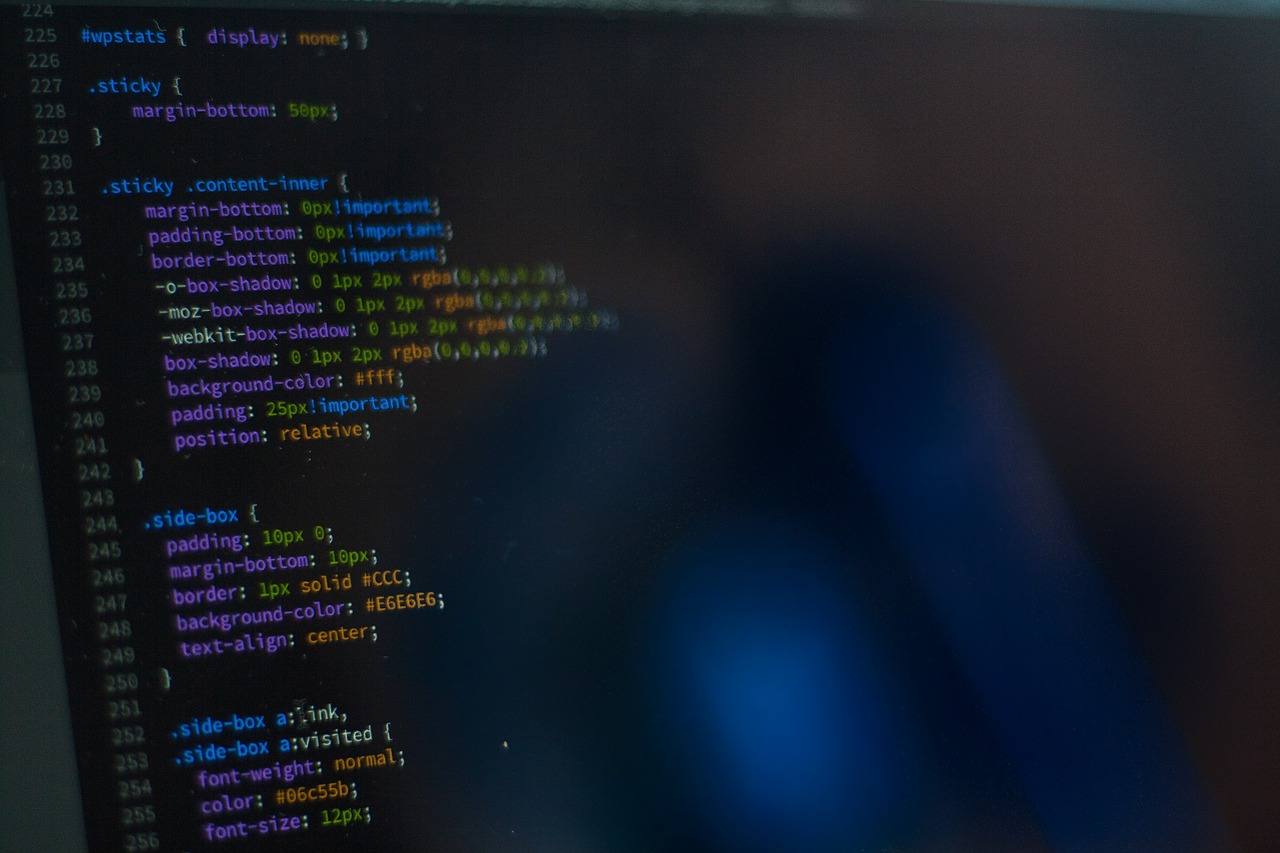
Case Studies of UCC Effects
The discussion around the Uniform Civil Code (UCC) often brings forth a myriad of opinions, but one of the most compelling ways to understand its potential impact is through case studies. These real-world examples can shed light on how similar legal frameworks have influenced gender equality and societal norms in various contexts. For instance, let's explore a couple of notable examples from countries that have adopted a uniform civil code.
In Turkey, the adoption of a secular civil code in the 1920s replaced the Islamic law that governed personal matters such as marriage and inheritance. This shift was monumental in promoting gender equality. Women gained the right to initiate divorce, which was previously a privilege reserved for men. As a result, the legal landscape transformed, allowing women to participate more actively in society. The positive ramifications of this change were evident in increased female literacy rates and participation in the workforce, highlighting how a uniform legal framework can empower marginalized groups.
Similarly, in Tunisia, the introduction of the Personal Status Code in 1956 was a significant step towards gender equality. This code abolished polygamy and established equal rights in matters of marriage and divorce. Women were granted the ability to make autonomous decisions regarding their personal lives, which led to greater social acceptance of women's rights. The effects of this legal reform are still visible today, as Tunisian women enjoy a higher status in society compared to many of their regional counterparts. This case illustrates that a uniform civil code can serve as a catalyst for societal change, fostering an environment where women are respected and their rights are upheld.
Moreover, examining the impact of the UCC in India itself can provide valuable insights. For example, the Hindu Succession Act of 1956, which aimed to provide women with equal rights to inherit property, marked a significant shift in the legal landscape for Hindu women. Although it was not a complete UCC, it served as a precursor, highlighting the need for comprehensive reforms that encompass all communities. The act's implementation resulted in an increase in women’s economic independence and contributed to changing perceptions about women’s roles in society.
However, it is essential to recognize that the journey toward a UCC is fraught with challenges. These case studies reveal that while the potential benefits are significant, the path to implementation requires careful consideration of the unique cultural contexts and religious sentiments of each community. The experiences of Turkey and Tunisia emphasize the importance of a robust legal framework that is sensitive to the diverse needs of the population.
In conclusion, the examination of these case studies illustrates that the implementation of a uniform civil code can lead to profound changes in societal norms and gender equality. While challenges remain, the positive outcomes observed in other nations provide a hopeful perspective on the potential effects of the UCC in India. As we move forward, it is crucial to engage in open dialogues that consider both the legal and cultural dimensions of this significant reform.
- What is the Uniform Civil Code (UCC)?
The UCC is a proposal to replace personal laws based on the scriptures and customs of each major religious community in India with a common set governing every citizen, promoting equality and justice. - Why is the UCC important?
The UCC aims to ensure equal rights for all citizens, irrespective of their religion, thereby promoting gender equality and simplifying legal processes. - What challenges does the UCC face?
Resistance from various religious communities, concerns about cultural identity, and political dynamics complicate the discourse surrounding the UCC. - How can the UCC impact gender equality?
By providing equal rights in marriage, divorce, and inheritance, the UCC can empower women and protect their interests in a patriarchal society.

Conclusion: The Path Forward
The journey toward implementing a Uniform Civil Code (UCC) in India is not just a legal endeavor; it is a profound societal challenge that requires a delicate balance between tradition and progress. As we stand at this crossroads, it is essential to recognize that the UCC is not merely about harmonizing laws; it is about fostering a sense of unity and equality among all citizens, regardless of their religious or cultural backgrounds. The road ahead is fraught with complexities, yet it holds the promise of a more just and equitable society.
One of the primary challenges in this journey is the need for widespread awareness and education regarding the benefits of the UCC. Many citizens may not fully understand how a uniform legal framework can enhance their rights and freedoms. To address this, a robust public awareness campaign is crucial. This campaign should focus on:
- Highlighting the advantages of a unified legal system.
- Addressing misconceptions about the UCC.
- Promoting discussions that involve various community leaders and stakeholders.
Furthermore, the implementation of the UCC must be approached with caution and respect for cultural identities. It is vital to engage with different religious communities to create a dialogue that acknowledges their concerns while emphasizing the importance of gender equality and individual rights. This could involve forming committees that include representatives from various faiths to ensure that their voices are heard in the legislative process.
Legal reforms need to be accompanied by social reforms that challenge the deeply entrenched patriarchal norms in our society. This means not only changing the laws but also changing the hearts and minds of the people. Educational initiatives aimed at empowering women and promoting gender equality can serve as a catalyst for this transformation. By encouraging women to assert their rights and educating them about the legal provisions available under the UCC, we can foster a more equitable environment.
As we move forward, it is essential to monitor and evaluate the impact of the UCC on society. Establishing a framework for feedback and assessment will help in understanding its effectiveness and making necessary adjustments. This could involve:
| Evaluation Criteria | Metrics |
|---|---|
| Gender Equality | Changes in marriage, divorce, and inheritance laws |
| Public Awareness | Surveys on understanding of UCC |
| Cultural Sensitivity | Feedback from community representatives |
In conclusion, the path forward for the Uniform Civil Code in India is one that requires collaboration, understanding, and a commitment to the principles of equality and justice. By embracing this opportunity, we can pave the way for a future where every citizen feels valued and protected under the same legal framework. The UCC is more than just a legal reform; it is a step toward building a nation that truly embodies the ideals of unity in diversity.
- What is the Uniform Civil Code?
The UCC aims to replace personal laws based on the scriptures and customs of each major religious community in India with a common set governing every citizen. - Why is the UCC important?
The UCC promotes gender equality, simplifies legal processes, and fosters national integration by ensuring that all citizens are subject to the same laws. - What are the challenges of implementing the UCC?
Challenges include resistance from religious communities, concerns about cultural identity, and political dynamics that complicate the discourse. - How can the UCC enhance gender equality?
It can provide equal rights in marriage, divorce, and inheritance, empowering women and protecting their interests in a patriarchal society.
Frequently Asked Questions
- What is the Uniform Civil Code (UCC)?
The Uniform Civil Code is a proposal to replace personal laws based on the scriptures and customs of each major religious community in India with a common set of laws governing every citizen. It aims to promote equality and justice for all, regardless of their religion.
- Why is the UCC important for gender equality?
The UCC has the potential to significantly enhance gender equality by ensuring that women have equal rights in marriage, divorce, and inheritance. This means that personal laws, which often favor men, would be reformed to provide equal treatment and rights under the law.
- What are the constitutional provisions supporting the UCC?
The Indian Constitution, particularly Articles 44 and 15, provides the foundation for the UCC. Article 44 encourages the state to secure a uniform civil code for all citizens, while Article 15 prohibits discrimination on various grounds, reinforcing the need for equality in personal laws.
- What challenges does the UCC face in India?
Despite its potential benefits, the UCC faces significant challenges, including resistance from various religious communities who fear that it infringes on their personal laws and threatens their cultural identity. Political dynamics also complicate the discussion, as parties may use religious sentiments for electoral gains.
- How would the UCC impact cultural identity?
Many opponents of the UCC argue that it could lead to a loss of cultural identity and tradition. They believe that personal laws are integral to their religious practices and that a uniform code may undermine their unique customs and beliefs.
- Can you provide examples of UCC implementation effects?
Examining case studies from regions where similar codes have been implemented can provide valuable insights into the practical effects of the UCC. These examples often illustrate how such reforms can improve women's rights and lead to more equitable societal norms.
- What is the path forward for UCC implementation?
The journey toward implementing the UCC in India requires a careful balance of legal, social, and cultural factors. It's essential to respect diversity while promoting equality and justice for all citizens, ensuring that the transition is smooth and inclusive.












